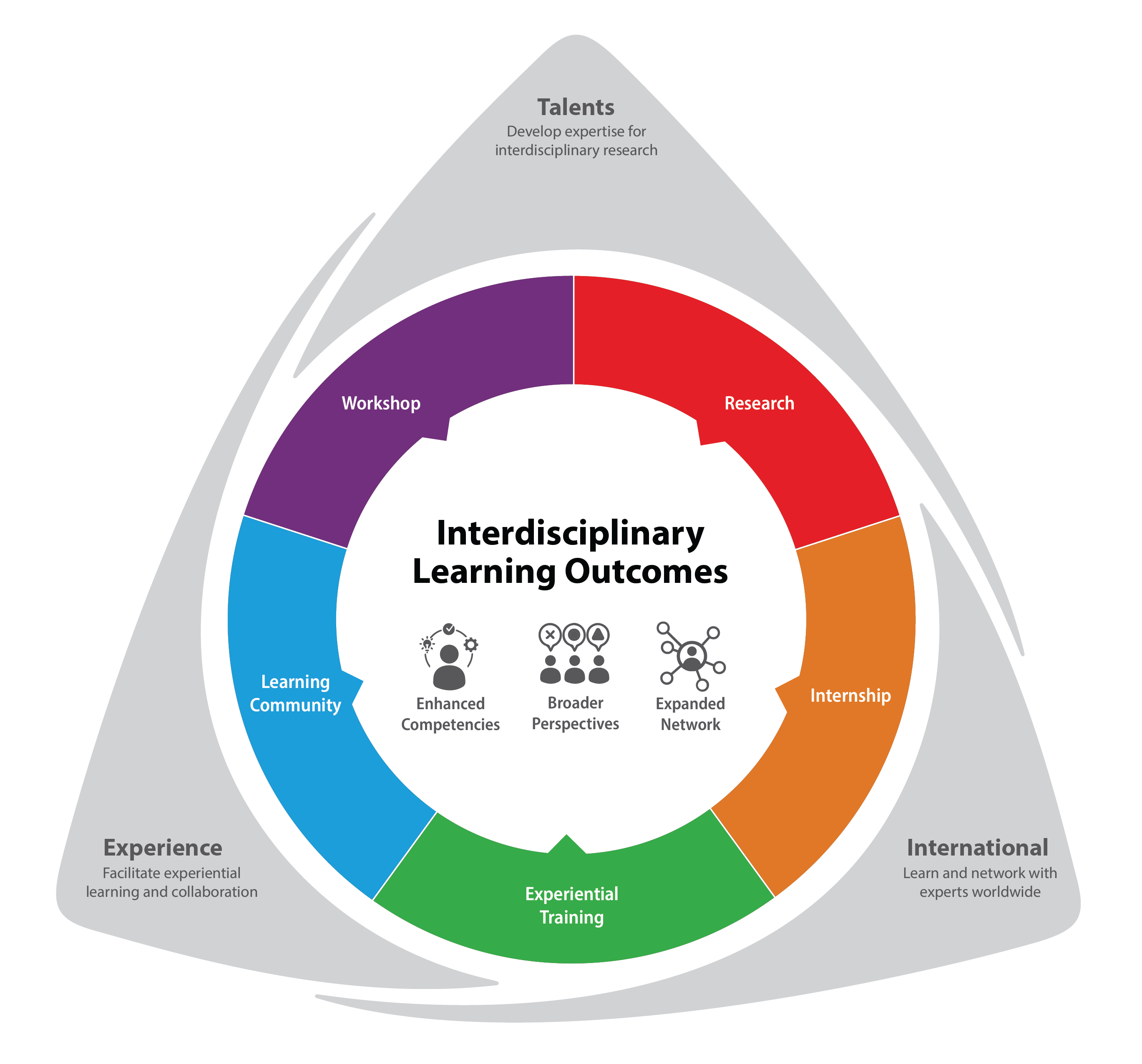A training model for interdisciplinarity
With its training program, Sentinel North is firmly committed to preparing the next generation of researchers, one that is collaborative, audacious and well equipped to take an active part in profound transformations for the benefit of society. In drawing on the diversity and scope of its research community, the program provided students with a unique learning environment that enabled them to push back the boundaries of their knowledge, expand their professional networks and engage in interdisciplinary collaboration.
A complementary and integrated approach to training
Sentinel North’s training program was built on three institutional pillars - talent, experience and internationality – to offer a broad range of training opportunities that focus on interdisciplinary capacity building as a complement to the institution’s existing programs.
The idea of offering a variety of training opportunities with diverse objectives was motivated by the firm belief that an integrated approach was needed to foster the development of the various competencies that are key to the success of interdisciplinary collaboration.
Main opportunities offered:
- Research: Funding for interdisciplinary research projects.
- Research internships: Mobility grants for international research internships.
- Experiential activities: Experiential training activities on campus, in the North and abroad allowing participants to immerse themselves in the interdisciplinary research process in a wide array of contexts.
- Learning community: Formal and informal social scientific activities giving members the chance to network and learn with their peers from other disciplines.
- Workshops: Short training courses to further develop skills in communication, collaboration, project management and research ethics.

A competency framework for interdisciplinarity
The competency framework for the Sentinel North training program played a central role in the development and implementation of the program’s various training initiatives. It is made up of five core competencies for interdisciplinary collaboration, defined by a set of sub-competencies and skills.

Critical thinking
Knowing how to situate oneself in a complex environment and play one’s part
- Search for knowledge and facts
- Analytical mindset
- Mature judgement
- Self-disciplinary awareness
Adaptability
Ability to work in a diverse and changing environment
- Flexibility
- Ability to use the process of knowledge translation
- Tolerance for ambiguity
- Innovative mindset
Creative problem solving
Ability to participate in the development of the best possible solution while thinking creatively
- Curiosity
- Ability to integrate knowledge
- Problem solving
- Creativity
Communication
Ability to tailor one’s message or convey a complicated idea to partners in other disciplines and outside the academic environment
- Effective communication
- Interdisciplinary communication
- Transdisciplinary communication
Collaboration and teamwork
Ability to foster respectful and productive discussions while encouraging diverse points of view
- Self-knowledge
- Interpersonal skills
- Openness
- Active listening